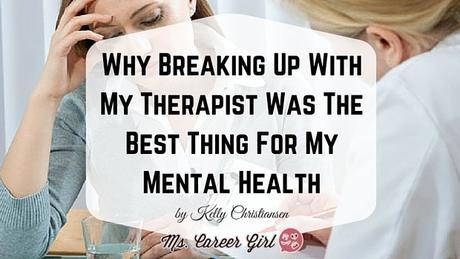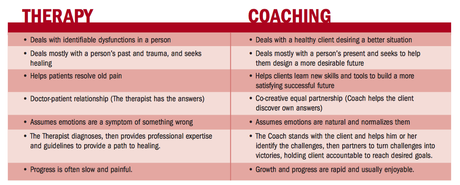
Everybody has "stuff". When our managing editor reminded us that it was mental health awareness month and asked who would like to author a column on this, I raised my hand. That's what humanity has been asking for lately, isn't it? More people who are calling dibs on depression. More of us sharing our stories. More of us talking about our strategies and steps we are taking to living a better, more meaningful life. So here is how I improved my mental health in the past 9 months.
Therapy initially helped me.
I went with the intention of improving my self-awareness and increasing my self-confidence.Let's start with self-awareness. The mindfulness learnings I picked up from therapy were excellent. I am one of those go-go-go types so for me, meditating daily seemed unrealistic. Before you eye roll and think I have gone all yoga budda zen garden, don't worry, I definitely have not. I still race around the house working up a sweat when I clean. I still walk off the soccer field with huge bruises that I don't remember obtaining. I still cry when I feel a flood of emotions all at the same time and am not sure how or which one to address first. But there are moments where I have learned how to do a few simple things to calm myself down:
- Breathing. I breathe in through my nose for four counts, hold my breath for four counts, and breathe out through my mouth for four counts. This is especially helpful at 4-minute stoplights, long lines at the grocery store, or anything that makes me feel impatient and agitated. These are also opportunities to think of something for which I am grateful.
- Watching clouds. As a meditation-novice, laying sill and watching the clouds for 3-minutes was incredibly helpful in my early months practicing mindfulness. Anytime there was a thought about something else, I would kick it out and watch clouds move and listen to the wind. I felt a calming stillness wave over me, a welcome opposite of running around doing 100 things per day. As Brené Brown writes in her latest book, Rising Strong, "the opposite of play can also be rest, contemplation, quiet, solitude, etc." A fantastic read, btw.
- Non-judgmentally observing my thoughts. Or said another way, no more judging your judgments! I can be incredibly harsh on myself - that too-brutal coach who the organization would have fired. I am still committed to detecting my thoughts, good or bad, and looking at them through a neutral, objective lens. A great analogy my therapist offered for this one was "riding the wave" - so you observe your [insert emotion here] and watch it's ascent, peak and then fall. You are exterior to it.
Self-confidence was a little trickier than mindfulness. Years later, I still felt shame and guilt about my wanting to get married when I was 22 and then deciding to get a divorce. I still felt shame that for those years- as Eleanor Roosevelt would say, I gave someone permission to make me feel inferior. I still felt shame that I sought validation from other people instead of from myself. Eventually, I set in motion a few vital behaviors to stop the self-shaming and get my confidence back.
- I started setting boundaries. When someone asked me if I wanted to do something that I did not wish to do yet I felt obligated to do, I practiced saying no, thank you. People pleasers have a hard time with this. We just need to keep graciously yet firmly reinforcing our boundaries and eventually, it will become a part of our new system.
- I employed DEARMAN. This is a dialectal behavior therapy (DBT) pneumonic to help you get what you want. You can use it for difficult situations and even write out and rehearse each of the steps prior to the conversation:

- DESCRIBE - Describe the situation with facts.
- EXPRESS - Express feelings/opinions about the situation clearly.
- ASSERT- Assert your wishes. Ask for what you want.
- REINFORCE - Reward people who respond positively to you. "Thanks for being so understanding. I really appreciate it."
- STAY MINDFUL - Keep your focus on your objectives.
- APPEAR CONFIDENT - Confident tone of voice and physical manner (heck even power pose).
- NEGOTIATE- Be willing to give to get. Offer to do something else or solve the problem another way.
- I worked in a safe space. Trying out setting boundaries for the first time is foreign. Working on this with your family, however, may be a safe place to start. For me it was - I am blessed to be able to write that my family loves me unconditionally. Sure, they may not be used to this new version of you, but the more you can honor yourself and respect yourself, the more self-love you will feel.
Within 6 months, I felt a marked change in myself - I had incorporated mindfulness into my daily routine - which improved my self-awareness. And I had initiated boundaries that helped boost my self-confidence. Plus, I stopped being so hard on myself - except when I went to therapy.
As soon as the door closed and I sat down on the floral couch I felt as if all of my forward progress went on pause. We would go back through the past and I would beat myself up for it all over again. I didn't know how to stop. Side note, if you're into astrology, Virgos by nature are hypercritical. And because I am sensitive and willing to look at and work on myself, this rearview mirror routine became too traumatic for me. Instead of leaving feeling lighter, I left feeling more weighed down and spent. It stopped being productive. I started to consider leaving and made a list of reasons why I would be okay and possibly better off if I stopped going:
- I am a self-motivated, curious, and driven person who is willing to be introspective on her own.
- How am I introspective? I read books that enlighten and inspire and I journal daily.
- I nourish my mind when I listen to guided meditations while I get ready in the morning. (A current fave is Soul of Healing Affirmations, by Deepak Chopra and Adam Plack.)
- I FaceTime weekly with a friend to discuss people that we care about.
- I still cry when I am with my family or my friends when I feel a lot of emotions at once. This is healthy and they still love me.
I decided to ditch the crying couch and continue my personal growth momentum outside the office. Many others have made this transition from therapy to coaching -Patrick Williams, Ed.D., MCC, sums up how coaching and therapy differ in this article: "...therapy is about uncovering and recovering, while coaching is about discovering."

Many certified coaches offer complimentary consultation sessions for those individuals who want to see what coaching can do for them.
Feel free to share your thoughts and continue the #mentalhealth conversation with us on our FB page and with columnist @kellymc247 .

